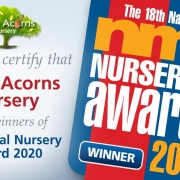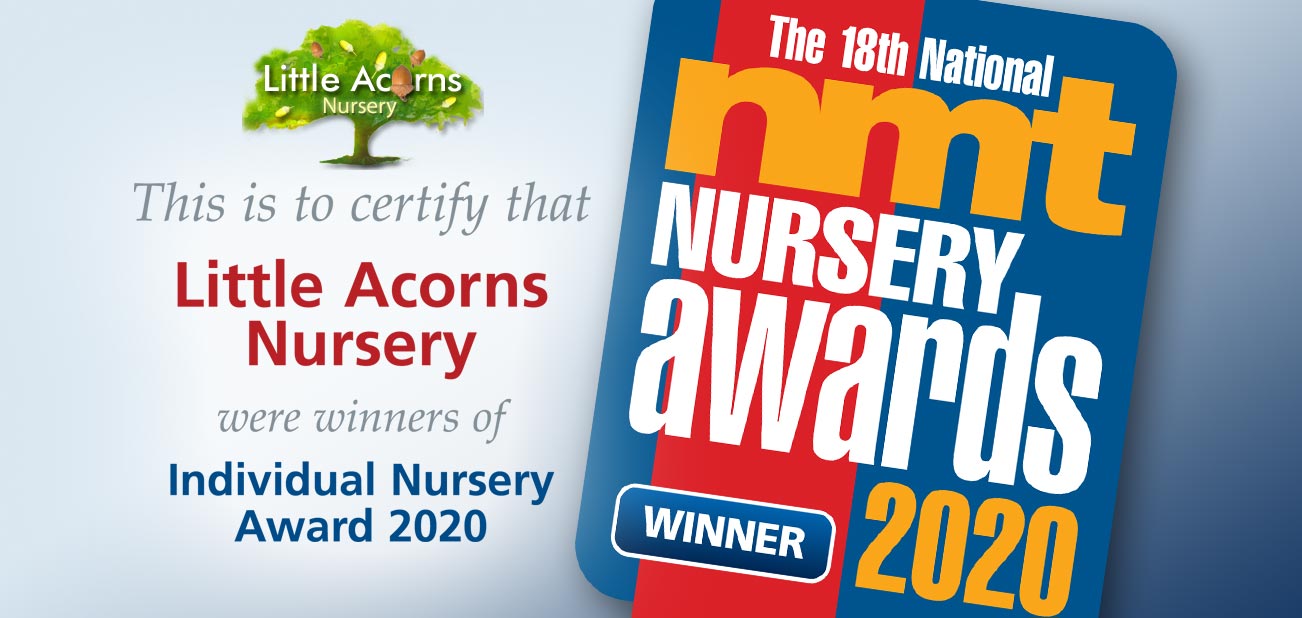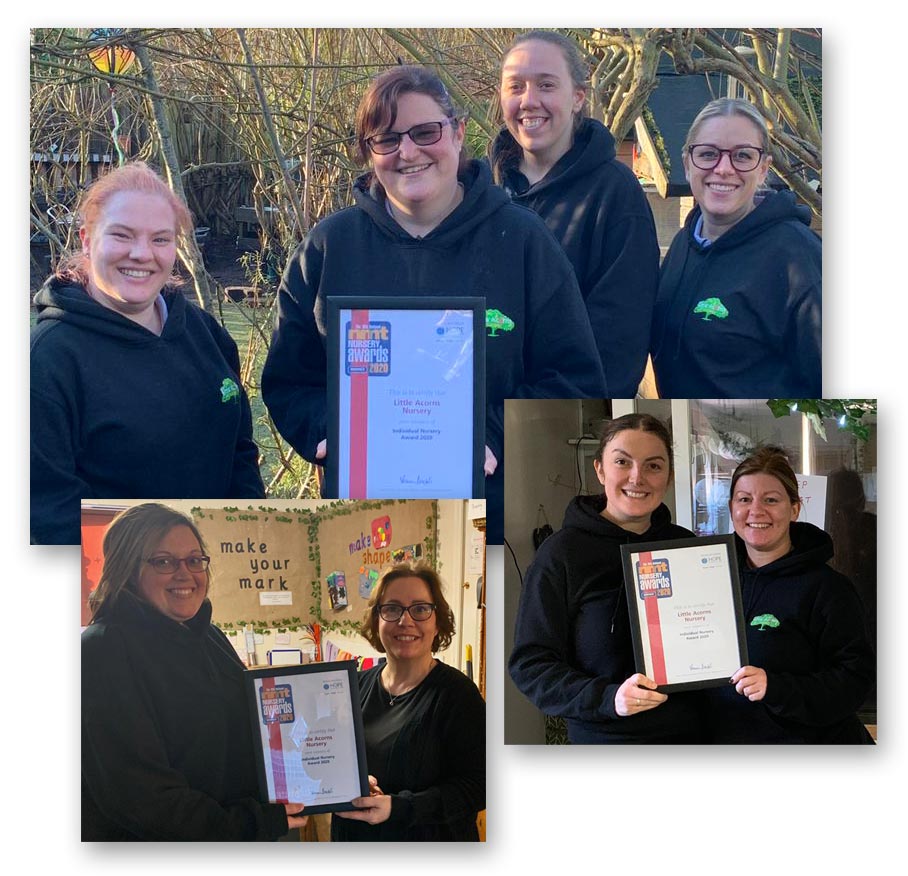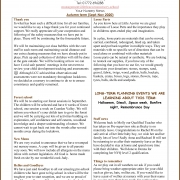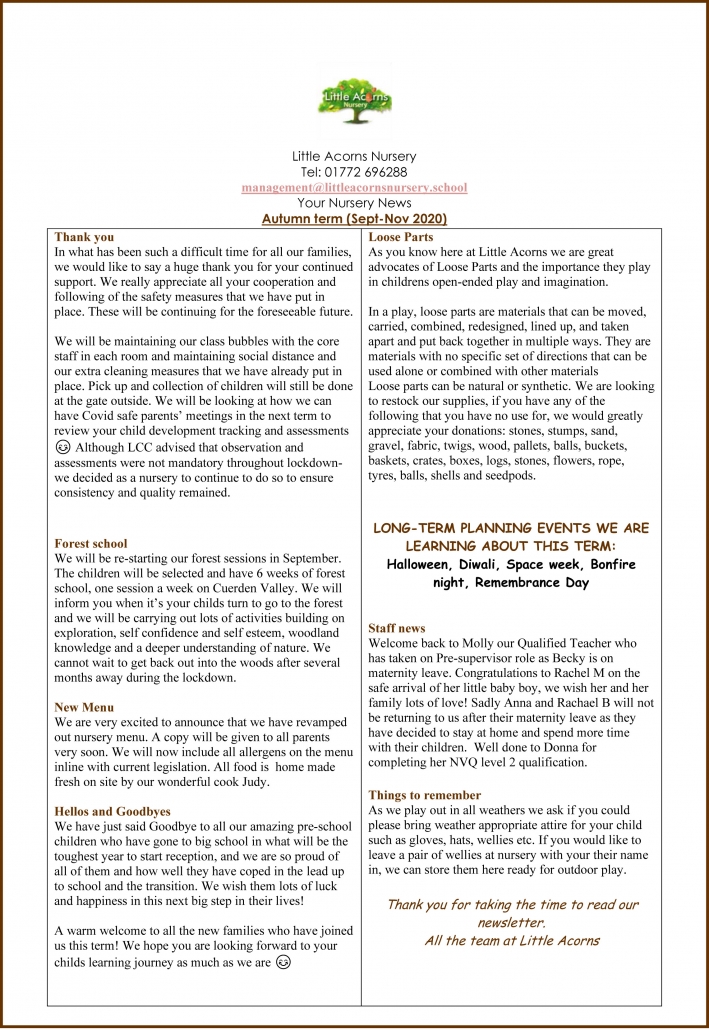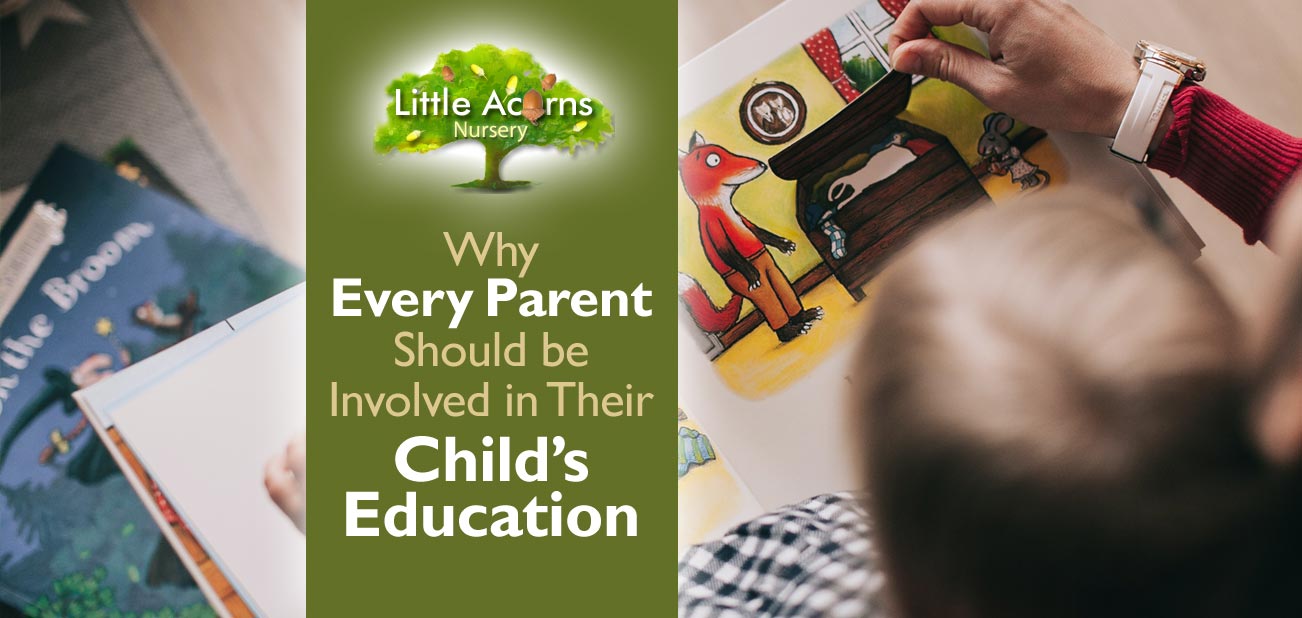
Compelling evidence shows that there are enormous benefits for children when parents are closely and proactively involved in their education.  Indeed, parents can be thought of as key to their children’s success, if they support children’s education in the right ways. We’ll go through exactly what that means, along with some of the many benefits, in this article.
Indeed, parents can be thought of as key to their children’s success, if they support children’s education in the right ways. We’ll go through exactly what that means, along with some of the many benefits, in this article.
During the earliest years of schooling … students with active parents are almost twice as likely to succeed. (Pinantoan)
Additional research also concluded that children are statistically far more successful in school when their parents “invest time and place value on their children’s education.”
So, How Can Parents Help?
Children will benefit in a multitude of ways when parents involve themselves in the child’s education. That involvement can take many forms …
 Choose the Right Setting
Choose the Right Setting
Researching and choosing a high quality nursery, pre-school, school and higher education setting, rather than simply accepting the ‘default’ choices, is incredibly important in its own right. Parents should be proactive when selecting educational and developmental settings for their children. Education settings need to be a good fit, of course. Also, though, they need to have good reputations, great feedback from previous and existing students and parents, an excellent track record and so on. If choosing a nursery, for example, is it rated as ‘outstanding’ by Ofsted? Does it have its own ‘Forest School’ where children can benefit from the natural world as well as having great facilities indoors? Are staff high quality, engaging and proactive when it comes to helping children to absolutely flourish, in every way? Parents of successful children will have checked all these things out in fine detail before making a choice.
Engaging With Staff
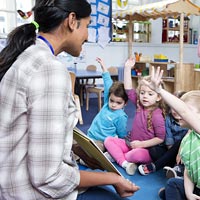 Parents of successful, grade A students, will generally also have engaged with staff at nursery/pre-school and school. That includes at parents’ evenings, of course, but parents should also be fully abreast of their child’s progress at every point in between. Parents and staff need to talk and feed back to each other about each child under their care and, indeed, that’s exactly what we do at Little Acorns Nursery. This, and a personal development progress folder for every child, is all part of the EYFS curriculum at the nursery in fact. In this way, parents and staff can each see the bigger picture and identify where successes are happening for the child, or where more work is needed — including at home.
Parents of successful, grade A students, will generally also have engaged with staff at nursery/pre-school and school. That includes at parents’ evenings, of course, but parents should also be fully abreast of their child’s progress at every point in between. Parents and staff need to talk and feed back to each other about each child under their care and, indeed, that’s exactly what we do at Little Acorns Nursery. This, and a personal development progress folder for every child, is all part of the EYFS curriculum at the nursery in fact. In this way, parents and staff can each see the bigger picture and identify where successes are happening for the child, or where more work is needed — including at home.
Help at Home
Armed with detailed knowledge of their child’s progress, strengths and weaknesses at pre-school, nursery or school, parents are then in a position to really help children at home. Where there is a weakness, the parent can help with extra guidance, knowledge and encouragement. The child in question can then more easily strengthen their skills and knowledge, making strong subjects even stronger whilst allowing weaker subjects and skills to catch up. In this way, and in tandem with education staff, every child can achieve personal bests in every single area. That’s amazing when you think about it.
Parents can read with children (that’s a crucial area and will be the topic of a future post). That’s like gold dust in itself and has been shown to boost language skills by a staggering 20% all on its own.
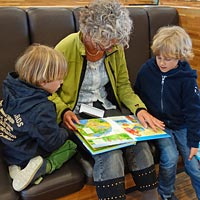 Parents can help children with homework too, of course. They can explain things that the child is perhaps confused or unclear about, in an unrushed, relaxed home environment. Parents can work through their approach to finding answers to questions and explain how they arrived at those answers. This, too, is like gold dust to an otherwise struggling child. It’s one of the reasons why the human race itself has come such a long way — through shared information.
Parents can help children with homework too, of course. They can explain things that the child is perhaps confused or unclear about, in an unrushed, relaxed home environment. Parents can work through their approach to finding answers to questions and explain how they arrived at those answers. This, too, is like gold dust to an otherwise struggling child. It’s one of the reasons why the human race itself has come such a long way — through shared information.
Parents can also help children to understand things like spelling, grammar, punctuation, pronunciation, phonetics and suchlike. With an adult available, many things can be clarified for the child. Parents can also, of course, spot test children in an informal way, to check that new information is being taken in and understood. Sometimes, of course, a child will need to read, or be told something, several times before it ‘sticks’ in their memory — and that’s fine.
Children who are given moral support and encouragement at home will be happier as well as being higher achievers. So, it’s not about being strict; it’s about support. The staff, children and parents are all part of a team that is working towards a shared goal.
In this way, every child can achieve personal bests in every area.
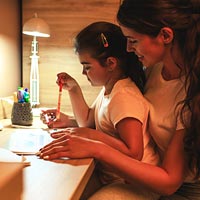
Parents should set aside an area in the house for the child to study in. It could be a quiet room somewhere, or an area of the child’s bedroom perhaps. Wherever it is, it should be peaceful, with no distractions, and contain everything the child needs to accomplish their studies, with somewhere for the parent to sit too. Somewhere safe and comfortable to sit, perhaps a desk when they’re older, some child-safe stationery items, paper and suitable light source, for example. Children will become used to using such an area to study in, with all the tools they need at their disposal so, in time, will find working easier and natural there.
The Benefits of Parental Support in Education
“Students with … parents operating in supportive roles are 52% more likely to enjoy school and get straight A’s than students whose parents are disengaged with what’s going on at school.”
(Pinantoan)
So, studies and data all point to children being higher achievers when parents are actively involved in their education. What else, though? What other benefits are there?
• The extra help they receive in core topics like English and Mathematics has a knock-on effect of helping them in every other topic.
• Learning topics and skills more thoroughly also helps to better prepare them for tests and to achieve better grades.
• With their better grades and higher achievement rates, children are likely to go on to better schools and universities, with a wider choice of courses available to them.
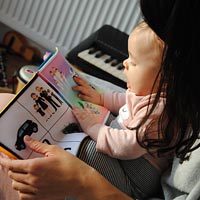 • In turn, that ultimately leads to better careers as adults, with higher rates of pay.
• In turn, that ultimately leads to better careers as adults, with higher rates of pay.
• Children with parental support in education are less likely to be stressed or anxious.
• They are often more confident individuals, with higher self-esteem.
• In turn, they are often happier individuals and therefore have a better quality of life.
• Everything they learn through this more rounded approach to education helps to improve other soft skills like critical thinking and problem-solving. It can also give them a good insight into the benefits of teamwork and cooperation with others.
• It’s also a great way for parents and children to form closer bonds and a feeling of mutual support. Indeed, that’s all a key part of a healthy family life.
So, it’s clear to see that close parental involvement in children’s education leads to a myriad of benefits for the child, with far-reaching and profound consequences. Improved outcomes is the really big hitter, of course. And those improved outcomes range across a huge swathe of the child’s life stretching from education and development right into adulthood, careers, wealth and quality of life. It’s nothing short of life-changing. Not many things in life can boast that kind of enormous impact, when you think about it.
At Little Acorns Nursery in Chorley
 As mentioned earlier in this article, Little Acorns Nursery adheres to the Early Years Foundation Stage (EYFS) curriculum for babies and children aged up to five. In recognition of the importance of parental involvement in children’s education, a key part of that is regular liaison between staff and parents, so each is kept up-to-date on progress in every area of the child’s learning and development. A Personal Development folder is maintained for every child and both staff and parents have access to records therein. Indeed, parents are encouraged to add their own notes about their child’s progress at home. All this builds a bigger picture and ultimately means the child will receive a more rounded education, with all the benefits that will bring them.
As mentioned earlier in this article, Little Acorns Nursery adheres to the Early Years Foundation Stage (EYFS) curriculum for babies and children aged up to five. In recognition of the importance of parental involvement in children’s education, a key part of that is regular liaison between staff and parents, so each is kept up-to-date on progress in every area of the child’s learning and development. A Personal Development folder is maintained for every child and both staff and parents have access to records therein. Indeed, parents are encouraged to add their own notes about their child’s progress at home. All this builds a bigger picture and ultimately means the child will receive a more rounded education, with all the benefits that will bring them.
Little Acorns Nursery is rated ‘outstanding’ by Ofsted, is a Forest School and was also the sole winner of best ‘Individual Nursery Award’ in the NMT Nursery Awards 2020 — an incredible win out of all the nurseries in the UK. If you would like to discuss the possibility of your baby or child attending the very best nursery or pre-school, we’d love to hear from you. Our nursery is based in Sheep Hill Lane in Clayton-le-Woods, Chorley in central Lancashire (PR6 7JH). Spaces are limited, so do get in touch while some are still available (choose a button below; many thanks).
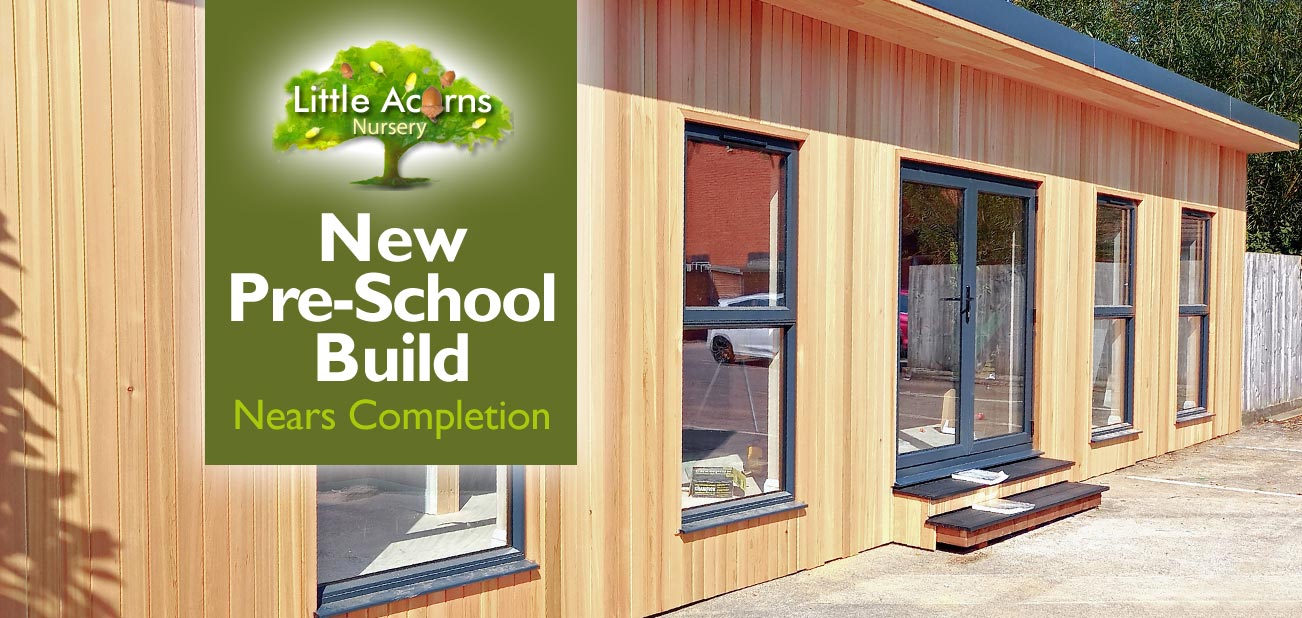
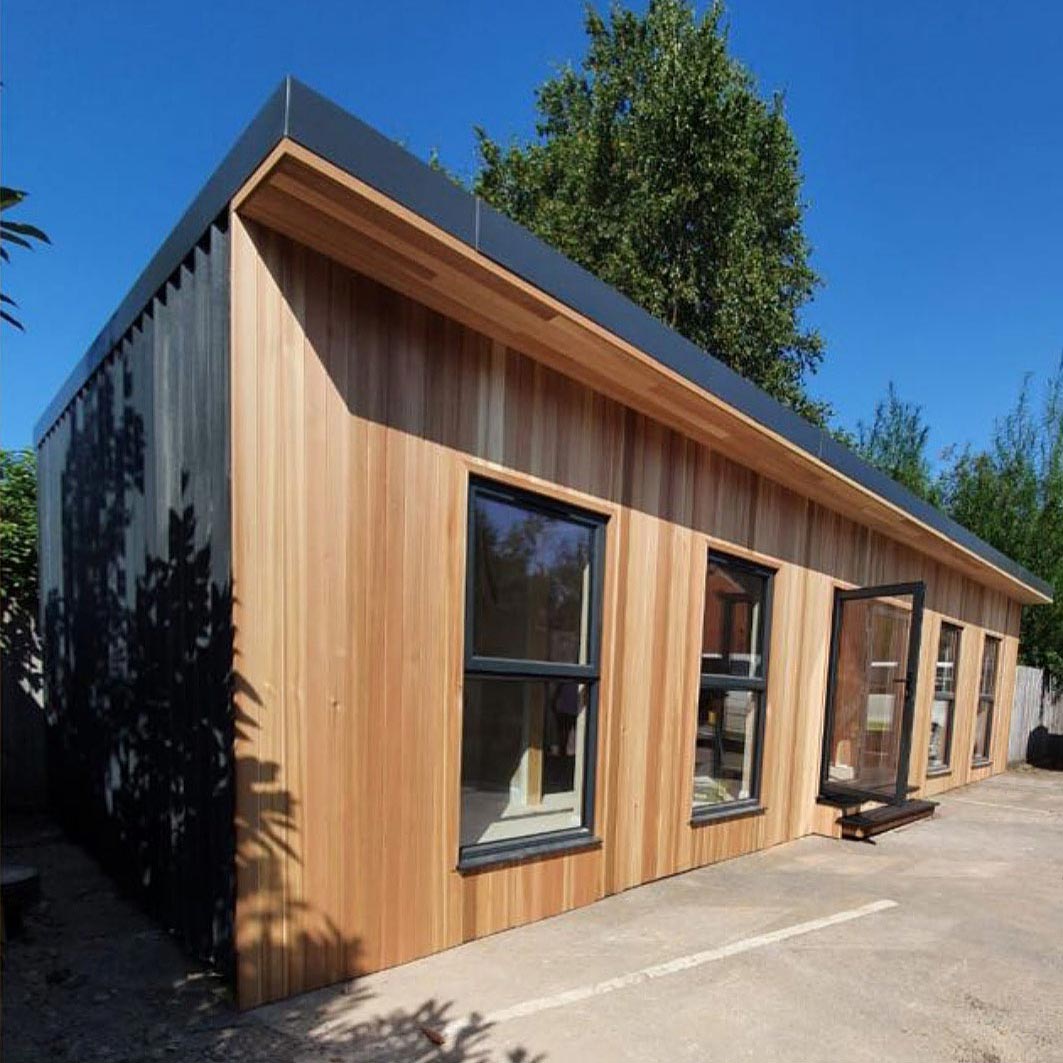 The nursery owners and staff are very excited to show you the new pre-school build, which is making great progress. Take a look at the photographs to see just how good it’s beginning to look, especially now that the high quality timber cladding is almost complete. This is going to be such a lovely new space for the children play and learn in.
The nursery owners and staff are very excited to show you the new pre-school build, which is making great progress. Take a look at the photographs to see just how good it’s beginning to look, especially now that the high quality timber cladding is almost complete. This is going to be such a lovely new space for the children play and learn in.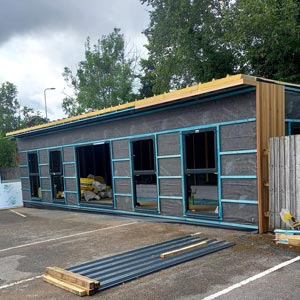
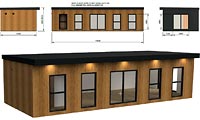 Being a modular, timber-framed construction means this new pre-school build has been far faster to build than a traditional approach. That, together with the fact that most of it was pre-fabricated in modules off-site, means that there has been minimal disruption, noise or safety concerns during construction. Indeed, we’d like to say a huge ‘thank you’ to the team at Smart Modular who have done such a wonderful job so far. We love it and can’t wait to see how the inside looks when it’s finished.
Being a modular, timber-framed construction means this new pre-school build has been far faster to build than a traditional approach. That, together with the fact that most of it was pre-fabricated in modules off-site, means that there has been minimal disruption, noise or safety concerns during construction. Indeed, we’d like to say a huge ‘thank you’ to the team at Smart Modular who have done such a wonderful job so far. We love it and can’t wait to see how the inside looks when it’s finished.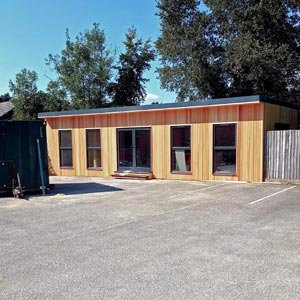 At Little Acorns, we cater to children’s abilities. Our high quality staff focus on those rather than what’s expected for their particular age. With a dedicated learning and development plan customised to the abilities and strengths of each individual child, they’re able to become the very best version of themselves during their time with Little Acorns. With the arrival of the new pre-school building, they’ll be even more likely to achieve personal bests in each area. And they’ll be even more ‘school ready’ by the time they complete their time with us, to move
At Little Acorns, we cater to children’s abilities. Our high quality staff focus on those rather than what’s expected for their particular age. With a dedicated learning and development plan customised to the abilities and strengths of each individual child, they’re able to become the very best version of themselves during their time with Little Acorns. With the arrival of the new pre-school building, they’ll be even more likely to achieve personal bests in each area. And they’ll be even more ‘school ready’ by the time they complete their time with us, to move 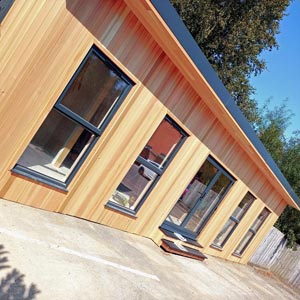 smoothly on to reception year at school.
smoothly on to reception year at school. That’s great news for Chorley and Central Lancashire parents who want the very best start for their children and who also like the idea of their child benefiting from a Forest School setting. If our unrivalled quality of childcare sounds appealing, please get in touch as soon as possible to avoid possible disappointment:
That’s great news for Chorley and Central Lancashire parents who want the very best start for their children and who also like the idea of their child benefiting from a Forest School setting. If our unrivalled quality of childcare sounds appealing, please get in touch as soon as possible to avoid possible disappointment:
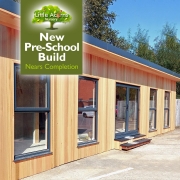
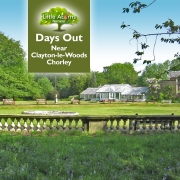
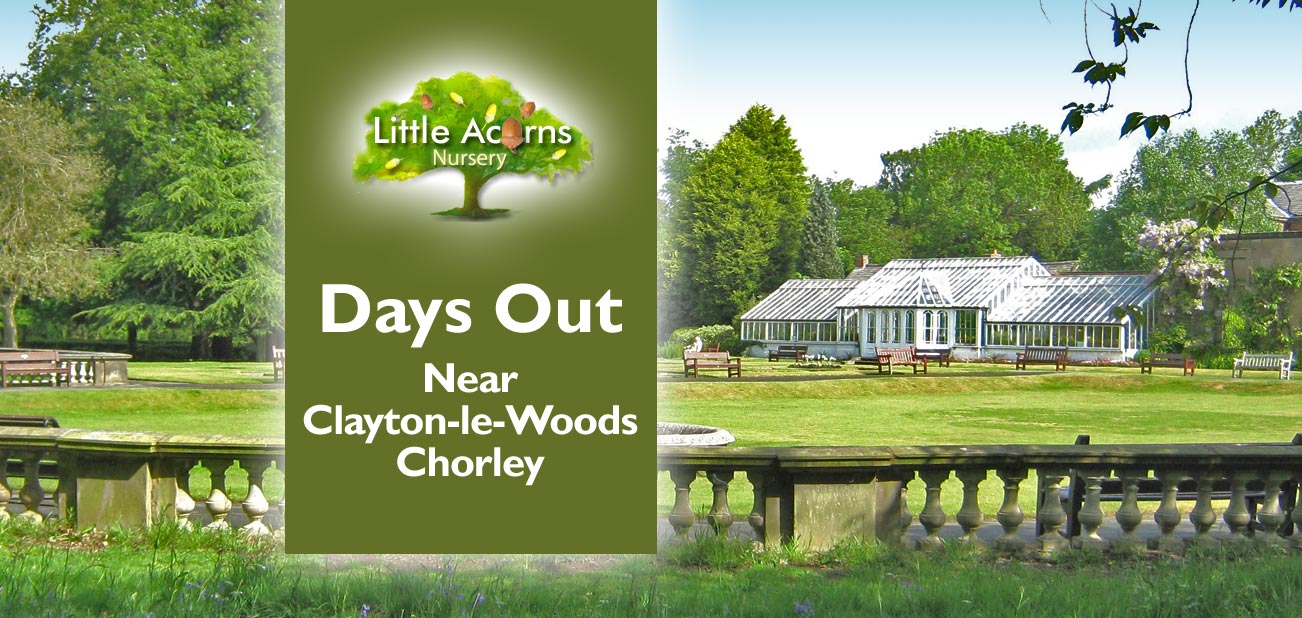
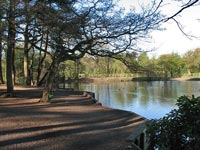
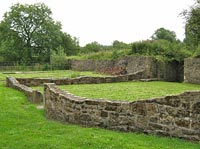

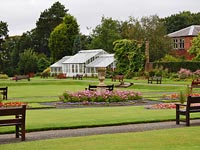
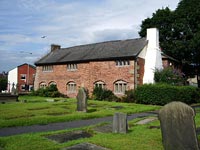
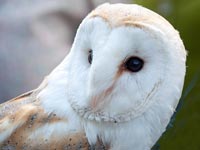
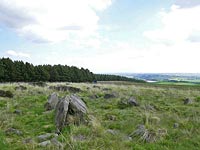
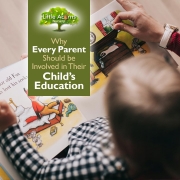

 Indeed, parents can be thought of as key to their children’s success, if they support children’s education in the right ways. We’ll go through exactly what that means, along with some of the many benefits, in this article.
Indeed, parents can be thought of as key to their children’s success, if they support children’s education in the right ways. We’ll go through exactly what that means, along with some of the many benefits, in this article. Choose the Right Setting
Choose the Right Setting Parents of successful, grade A students, will generally also have engaged with staff at nursery/pre-school and school. That includes at parents’ evenings, of course, but parents should also be fully abreast of their child’s progress at every point in between. Parents and staff need to talk and feed back to each other about each child under their care and, indeed, that’s exactly what we do at Little Acorns Nursery. This, and a personal development progress folder for every child, is all part of the EYFS curriculum at the nursery in fact. In this way, parents and staff can each see the bigger picture and identify where successes are happening for the child, or where more work is needed — including at home.
Parents of successful, grade A students, will generally also have engaged with staff at nursery/pre-school and school. That includes at parents’ evenings, of course, but parents should also be fully abreast of their child’s progress at every point in between. Parents and staff need to talk and feed back to each other about each child under their care and, indeed, that’s exactly what we do at Little Acorns Nursery. This, and a personal development progress folder for every child, is all part of the EYFS curriculum at the nursery in fact. In this way, parents and staff can each see the bigger picture and identify where successes are happening for the child, or where more work is needed — including at home. Parents can help children with homework too, of course. They can explain things that the child is perhaps confused or unclear about, in an unrushed, relaxed home environment. Parents can work through their approach to finding answers to questions and explain how they arrived at those answers. This, too, is like gold dust to an otherwise struggling child. It’s one of the reasons why the human race itself has come such a long way — through shared information.
Parents can help children with homework too, of course. They can explain things that the child is perhaps confused or unclear about, in an unrushed, relaxed home environment. Parents can work through their approach to finding answers to questions and explain how they arrived at those answers. This, too, is like gold dust to an otherwise struggling child. It’s one of the reasons why the human race itself has come such a long way — through shared information.
 • In turn, that ultimately leads to better careers as adults, with higher rates of pay.
• In turn, that ultimately leads to better careers as adults, with higher rates of pay.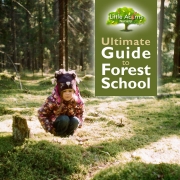
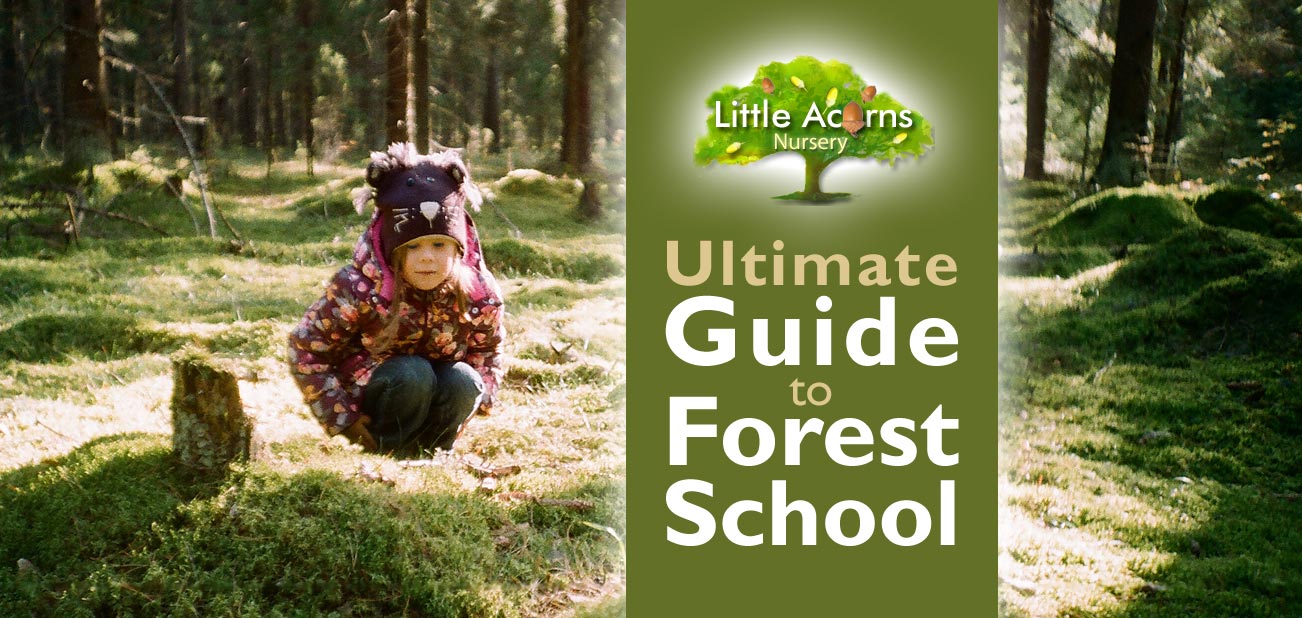
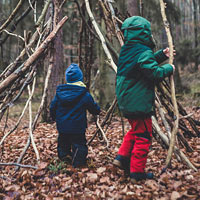 Little Acorns Nursery offers Forest School sessions* and, indeed, was the first childcare setting in the Chorley area to offer them. Many parents understand that ‘Forest School’ offers children outdoor discovery sessions where they can explore nature and all that the Great Outdoors has to offer. However, what’s it really about? What is the ethos behind it? How did it come about and what is its history? Perhaps most importantly, what are its benefits to children? Here we’ll answer all those questions and more, in our Ultimate Guide to Forest School.
Little Acorns Nursery offers Forest School sessions* and, indeed, was the first childcare setting in the Chorley area to offer them. Many parents understand that ‘Forest School’ offers children outdoor discovery sessions where they can explore nature and all that the Great Outdoors has to offer. However, what’s it really about? What is the ethos behind it? How did it come about and what is its history? Perhaps most importantly, what are its benefits to children? Here we’ll answer all those questions and more, in our Ultimate Guide to Forest School.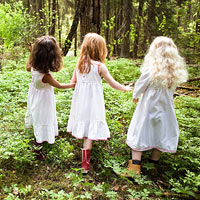 The biggest influence, however, came from Scandinavia and the play-based, child-centric educational system of Denmark’s outdoors (‘friluftsliv’) approach to early years education. Their revolutionary outdoor system was hugely successful, so nursery staff from Bridgewater College in Somerset visited Denmark to see it in action for themselves. They were so impressed that they founded the first Forest School, following their return to the UK, in 1993.
The biggest influence, however, came from Scandinavia and the play-based, child-centric educational system of Denmark’s outdoors (‘friluftsliv’) approach to early years education. Their revolutionary outdoor system was hugely successful, so nursery staff from Bridgewater College in Somerset visited Denmark to see it in action for themselves. They were so impressed that they founded the first Forest School, following their return to the UK, in 1993. With a focus on nature and the natural world, Forest School sessions take place outdoors, ideally in natural, woodland settings. If that’s not possible, natural areas containing trees would be the next best setting, although more urban locations may necessitate the use of school grounds if no woodlands are available locally. In that scenario, practitioners would bring in natural materials such as sticks, logs, fir cones and so on.
With a focus on nature and the natural world, Forest School sessions take place outdoors, ideally in natural, woodland settings. If that’s not possible, natural areas containing trees would be the next best setting, although more urban locations may necessitate the use of school grounds if no woodlands are available locally. In that scenario, practitioners would bring in natural materials such as sticks, logs, fir cones and so on.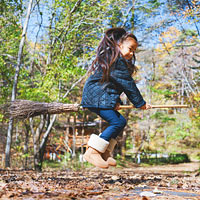 Forest Schools focus on each child’s individual interests, skills, preferences and needs as well as balancing them with those of the whole group. Indeed, this builds a community that’s immersed in this natural environment, learning from it and also from one another. Play is a huge part of this and, as always, ensures that learning is immense fun.
Forest Schools focus on each child’s individual interests, skills, preferences and needs as well as balancing them with those of the whole group. Indeed, this builds a community that’s immersed in this natural environment, learning from it and also from one another. Play is a huge part of this and, as always, ensures that learning is immense fun.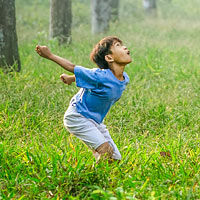 Nature teaches children so much — about flora, fauna and the make-up of the world (of course); but it also teaches children about themselves. Children will learn or discover new hard and soft skills when out in the natural world. They’ll discover skills that they didn’t know they had. Leadership, critical thinking, team-working and problem-solving are just a few examples.
Nature teaches children so much — about flora, fauna and the make-up of the world (of course); but it also teaches children about themselves. Children will learn or discover new hard and soft skills when out in the natural world. They’ll discover skills that they didn’t know they had. Leadership, critical thinking, team-working and problem-solving are just a few examples.